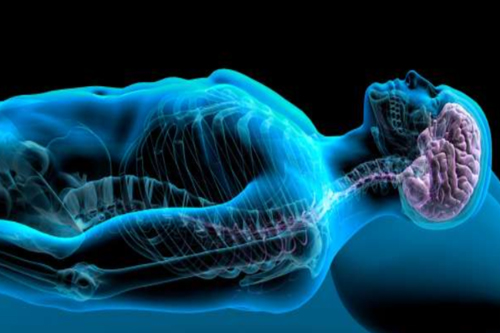
Neurotrauma
How is neurotrauma diagnosed?
Neurotrauma is typically a stand-alone type of injury but may also be combined with other types of bodily injury. For instance, most people who suffer severe spine or brain injuries first seek services at the ER because no appointments are necessary to receive care at this level.
As soon as the patient is brought into the ER, thorough analysis by a doctor tries to quickly determine if spinal or brain damage exists. Advanced imaging technology, such as a CT scan or MRI, is employed by doctors to accurately understand the nature of the injuries.
How to find the best hospital for treatment?
When you need to seek care for disorders in the brain and spine, consider hospitals that have:
- Neuroscience ICUs provided by highly specialized health-care professionals to address all the issues that have arisen.
- Advanced medical technologies for continuous monitoring of vital functions.
- In this case, family support and communication would be emphasized to reduce emotional strain.
- Holistic care that includes prevention methods, therapy approaches, and ways to recoup.
Neurotrauma Treatment
Treatment for head and spine injuries varies based on severity:
- Mild injuries may require observation, while severe trauma may necessitate surgery.
- Mount Sinai offers comprehensive therapies similarly, neuropsychological, speech, physical, and occupational therapy.
- Surgical procedures include various interventions similarly ventricular drain placement, craniotomy, spine stabilization, and fusion.
- Even after mild injuries, persistent symptoms are addressed through ongoing support and care.
Causes of Neurotrauma
- Falls: One of the leading causes of TBIs, especially in older adults or children.
- Motor Vehicle Accidents: High-impact collisions can lead to severe head and spinal injuries.
- Sports Injuries: Contact sports can cause concussions and other brain injuries.
- Violence: Gunshot wounds or physical assaults can lead to penetrating brain injuries.
- Workplace Accidents: Industrial or construction site accidents may result in neurotrauma.
Diagnosis
Diagnosing neurotrauma typically involves:
- Medical History or Physical Examination: Assessing the mechanism of injury and symptoms.
- Neurological Examination: Checking cognitive function, motor skills, reflexes, and sensory responses.
- Imaging Studies:
- CT Scan: Quickly assesses brain injuries, especially for bleeding or fractures.
- MRI: Provides detailed images of brain and spinal cord injuries, identifying areas of damage and swelling.
- Electrophysiological Tests: Such as electromyography (EMG) and nerve conduction studies to evaluate peripheral nerve injuries.
Treatment
Treatment of neurotrauma varies based on the type and severity of the injury:
Emergency Care:
Stabilizing the patient, ensuring proper breathing, and addressing any life-threatening issues.
Immediate imaging and assessment to guide further treatment.
Surgical Interventions:
Decompressive Craniectomy: Removal of part of a skull to relieve pressure on the brain.
Hematoma Evacuation: Surgical removal of blood clots from the brain.
Spinal Stabilization: Surgical repair or stabilization of fractured vertebrae or spinal injuries.
Rehabilitation:
Physical Therapy: Aims to improve mobility and strength.
Occupational Therapy: Focuses on helping patients regain independence in a daily activities.
Speech Therapy: Addresses communication and swallowing difficulties.
Psychological Support: Counseling or a support for emotional and cognitive challenges.
Medications:
Pain management, anti-inflammatory drugs, and medications to reduce intracranial pressure (e.g., mannitol).
Neuroprotective agents may be explored to minimize further brain injury.
Types of Neurotrauma
- Traumatic Brain Injury (TBI)
Definition: A form of neurotrauma that occurs when an external force injures the brain.
Types:
– Concussion: A mild form of TBI, often with temporary effects on brain function.
– Contusion: Bruising of the brain tissue, usually from a direct blow to the head.
– Penetrating Injury: Occurs when an object penetrates the skull or brain.
– Diffuse Axonal Injury: Widespread damage to brain cells due to the rotational forces during an impact.
– Symptoms: Headache, confusion, dizziness, memory problems, difficulty concentrating, mood changes, and in severe cases, loss of consciousness or coma. - Spinal Cord Injury (SCI)
Definition: Damage to the spinal cord that results in loss of function, sensation, or mobility.
Types:
– Complete Injury: Total loss of sensory or motor function below the injury site.
– Incomplete Injury: Some function remains below the injury site; varying degrees of the recovery are possible.
– Symptoms: Weakness or paralysis in the limbs, loss of sensation, changes in bowel or bladder control, and respiratory difficulties (in high cervical injuries). - Peripheral Nerve Injury
– Definition: Injury to the nerves outside the brain and spinal cord, often due to trauma, compression, or laceration.
– Symptoms: Weakness, numbness, tingling, and loss of function in the affected area (e.g., wrist drop, foot drop).
Diagnosis
Neurotrauma evaluation at Mount Sinai:
- Most of the patients present at the ER without appointments.
- Scans on the brain conducted right away, either CT scan or MRI
- Follow up, if upon discharge from the hospital a patient presents problems socializing or cognitively
Diagnosis;
- Neurological examinations that can entail:
- Glasgow Coma Scale
- Cognitive assessment by neuropsychologists.
- Assessment of cognitive functions, physical, and occupational therapists.
